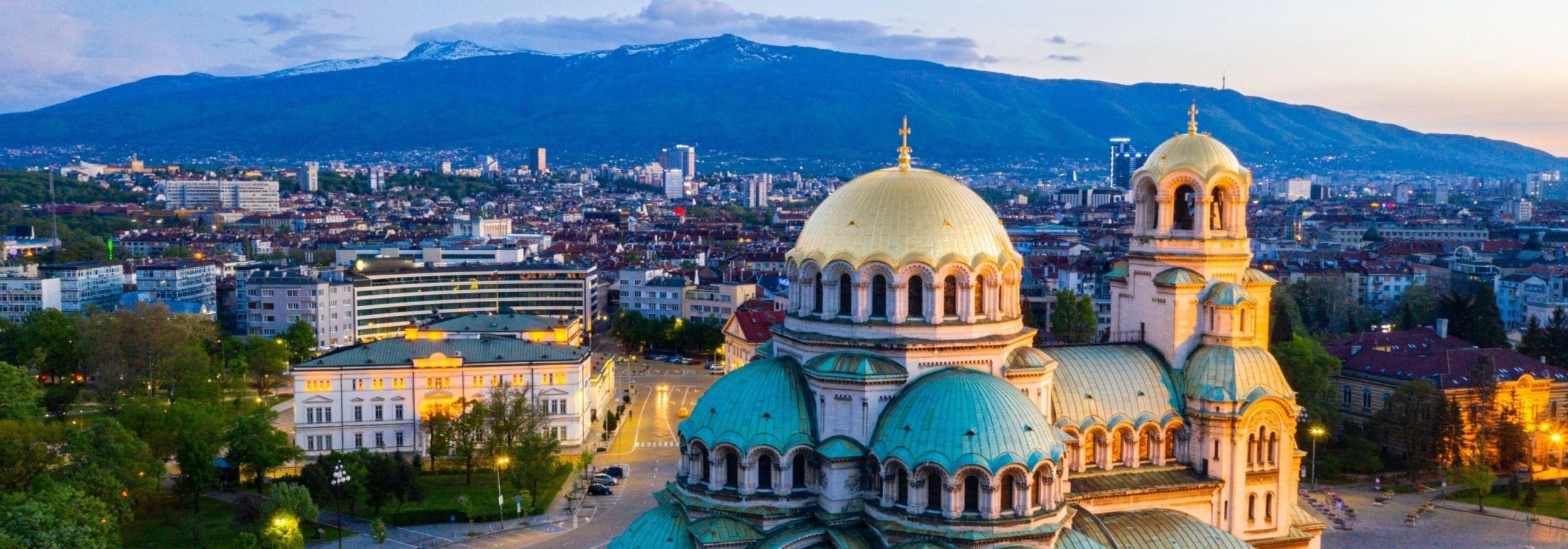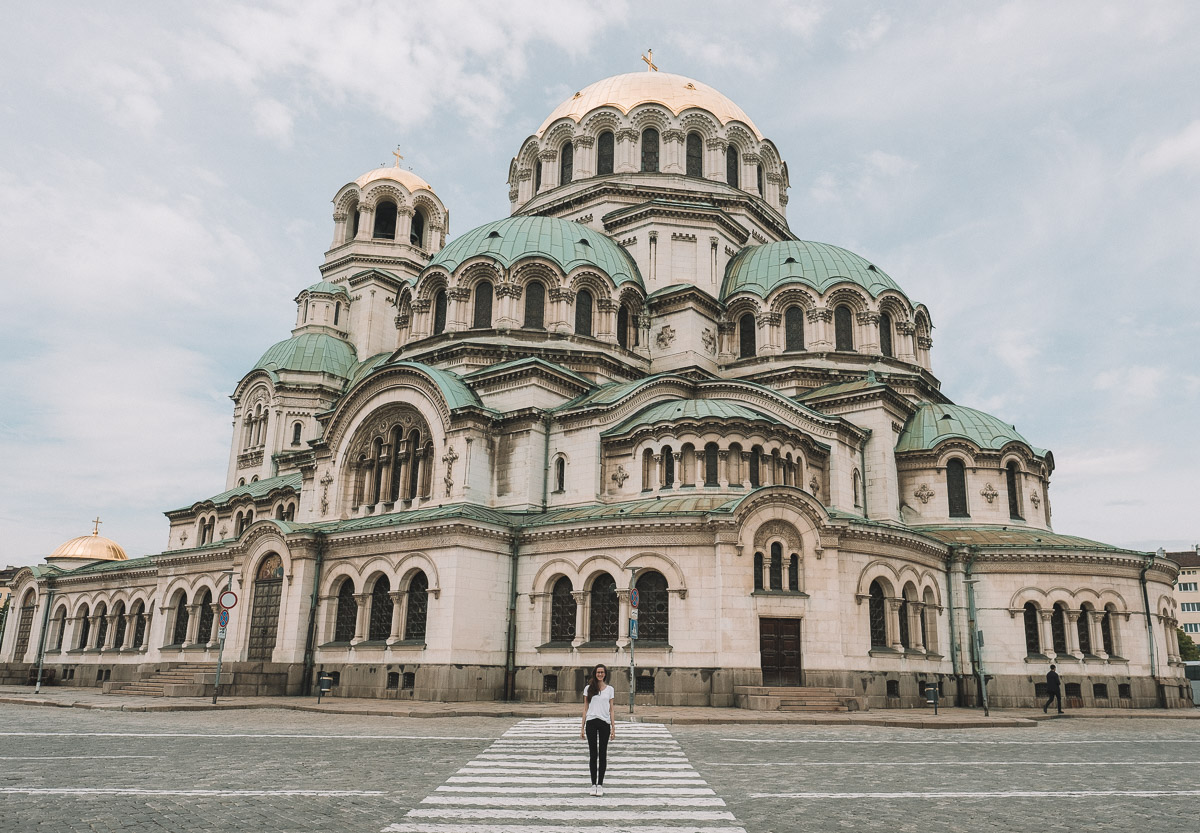
Bulgaria, a land where ancient Thracian tombs whisper secrets to Byzantine fortresses, and snow-capped peaks cradle emerald valleys, is a country that often surprises and enchants. Nestled in the heart of the Balkans, it boasts a rich and complex history, a diverse natural landscape, and a vibrant cultural heritage that is slowly but surely emerging onto the world’s travel radar. From the bustling capital of Sofia to the serene Black Sea coast, and from the majestic Rila Mountains to the charming villages of the Rhodopes, Bulgaria offers a captivating journey for every kind of traveler.
A Glimpse into Bulgaria’s Storied Past: A Legacy of Empires and Resilience
Bulgaria’s history is a testament to its strategic location, having been a crossroads for empires for millennia. The earliest inhabitants, the Thracians, left behind an enigmatic legacy of intricate gold artifacts and monumental tombs, hinting at a sophisticated and spiritual society. Later, the Romans left their mark with impressive amphitheatres and paved roads.

Related Articles about Bulgaria: A Tapestry of Ancient Wonders, Natural Beauty, and Untamed Spirit:
- Beyond the Hallyu Wave: A Comprehensive Guide to Experiencing the Magic of South Korea
- Oman: A Jewel of Arabia – Your Essential Travel Guide
- Peru: A Tapestry of Ancient Wonders, Vibrant Cultures, and Breathtaking Landscapes
- Beyond the Beaten Path and the Iconic Landmarks: A Grand Tour of the United Kingdom
- Maldives: An Azure Dream – Your Ultimate Travel Guide to Paradise
The true foundation of Bulgaria, however, was laid by the First Bulgarian Empire in the 7th century. This powerful kingdom, a significant player in medieval Europe, adopted Christianity and developed its own unique Cyrillic alphabet, a contribution that profoundly shaped Eastern European culture. The Second Bulgarian Empire, rising from the ashes of Byzantine rule, continued this rich tradition, fostering art, architecture, and religious fervor.
Centuries of Ottoman rule followed, leaving an indelible influence on Bulgarian cuisine, architecture, and traditions. This period, though challenging, fostered a strong sense of national identity and a deep desire for independence, which was finally achieved in the late 19th century. The 20th century brought further upheaval with two World Wars and decades of communist rule, shaping the nation’s modern identity and leaving behind a unique blend of socialist-era infrastructure and a yearning for democratic ideals. Today, Bulgaria is a proud member of the European Union, a nation actively rebuilding its economy and embracing its rich cultural heritage.
Top Attractions: Unveiling Bulgaria’s Treasures
Bulgaria’s allure lies in its diverse array of attractions, catering to history buffs, nature lovers, and those seeking authentic cultural experiences.
1. Sofia: The Capital’s Enduring Charm:
Sofia, the capital, is a vibrant metropolis where ancient history meets modern life.
- Alexander Nevsky Cathedral: This magnificent Neo-Byzantine cathedral is an iconic symbol of Sofia, its gilded domes glinting against the sky.
- St. George Rotunda: The oldest building in Sofia, dating back to the 4th century, this ancient church offers a glimpse into Roman and early Christian Sofia.
- National Historical Museum: Delve into Bulgaria’s past through an extensive collection of artifacts spanning millennia.
- Vitosha Mountain: A short drive from the city center, Vitosha offers stunning panoramic views of Sofia and excellent hiking opportunities.
- Roman Serdica Complex: Explore the unearthed ruins of the ancient Roman city of Serdica, now integrated into the modern city.

2. Plovdiv: Europe’s Oldest Inhabited City:
Plovdiv, the second-largest city, is a UNESCO World Heritage site and a captivating blend of ancient and modern.
- Old Town: Wander through the cobblestone streets of the Old Town, adorned with colorful Revival-era houses, art galleries, and charming cafes.
- Ancient Roman Theatre: This remarkably preserved Roman amphitheater still hosts performances, offering a unique historical experience.
- Nebet Tepe: Explore the remnants of an ancient Thracian settlement with breathtaking views of the city.
- Kapana Creative District: Discover a labyrinth of narrow streets filled with independent boutiques, artisan workshops, and trendy bars.
3. Rila Monastery: A Spiritual Sanctuary:
Nestled in the heart of the Rila Mountains, this UNESCO World Heritage site is Bulgaria’s largest and most famous monastery. Its striking architecture, vibrant frescoes, and serene atmosphere make it a must-visit destination.
4. Veliko Tarnovo: The Medieval Capital:
Perched on the steep banks of the Yantra River, Veliko Tarnovo was the capital of the Second Bulgarian Empire.
- Tsarevets Fortress: Explore the imposing ruins of this medieval fortress, once the seat of Bulgarian tsars.
- Samovodska Charshiya: A picturesque street lined with traditional craft shops, offering a glimpse into Bulgarian artisanal traditions.
5. The Rhodope Mountains: Nature’s Serene Embrace:
This mystical mountain range offers breathtaking natural beauty, charming villages, and opportunities for hiking, skiing, and exploring.
- Devil’s Throat Cave: Legend has it that Orpheus descended into the underworld through this impressive cave.
- Yagodina Cave: One of the longest caves in Bulgaria, featuring stunning stalactites and stalagmites.
- Shiroka Laka: A beautifully preserved architectural reserve showcasing traditional Rhodopean houses.
6. The Black Sea Coast: Sun, Sand, and Ancient History:
Bulgaria’s coastline boasts a mix of bustling resorts and quieter, more secluded beaches.
- Nessebar: Another UNESCO World Heritage site, this ancient town on a peninsula is a treasure trove of churches and Byzantine architecture.
- Sozopol: A charming fishing town with a rich history, offering a more relaxed atmosphere than some of the larger resorts.
- Sunny Beach & Golden Sands: Popular for their long stretches of sand, vibrant nightlife, and water sports.
7. Thracian Tombs:
Scattered across southern Bulgaria, these ancient burial sites, such as the Tomb of Kazanlak and the Tomb of Sveshtari, offer a fascinating glimpse into the beliefs and artistry of the Thracians.
Travel Tips for a Smooth Bulgarian Adventure
- Currency: The official currency is the Bulgarian Lev (BGN). Euros are widely accepted in tourist areas, but it’s advisable to carry some Levs for smaller purchases.
- Language: The official language is Bulgarian, which uses the Cyrillic alphabet. While English is spoken in tourist hubs, learning a few basic Bulgarian phrases will be greatly appreciated.
- Visa: Check visa requirements based on your nationality. Bulgaria is part of the EU but not yet fully in the Schengen Area, though this is changing.
- Safety: Bulgaria is generally a safe country for tourists. Exercise common sense, be aware of your surroundings, and keep valuables secure.
- Tipping: Tipping is customary in restaurants and for services. Around 10% is a good guideline.
- Electricity: The voltage is 230V, and plugs are Type C and F.
- Water: It’s generally advisable to drink bottled water.
Accommodation Options: From Budget to Boutique
Bulgaria offers a diverse range of accommodation to suit every budget and preference.
- Hotels: You’ll find everything from large international chains in Sofia and along the coast to smaller, family-run hotels in the countryside. Prices vary significantly based on location and star rating.
- Guesthouses (Kushti za gostii): These are a fantastic way to experience authentic Bulgarian hospitality, especially in rural areas and historical towns. They often offer home-cooked meals and a personal touch.
- Apartments and Vacation Rentals: Ideal for families or longer stays, these offer more space and flexibility.
- Hostels: Budget travelers will find a good selection of hostels in major cities, offering affordable dormitory beds and private rooms.
- Mountain Huts (Hizhata): For hikers and trekkers, mountain huts offer basic but comfortable accommodation in scenic locations.
Transportation: Navigating Bulgaria with Ease
Getting around Bulgaria is becoming increasingly convenient with various transportation options.
- Flights: Sofia Airport (SOF) is the main international gateway. There are also smaller airports in Varna and Burgas serving domestic and some international routes.
- Trains: The Bulgarian State Railways (BDZ) operates a network connecting major cities and towns. While sometimes slower than buses, trains offer a scenic way to travel.
- Buses: Buses are the most extensive form of public transport, reaching even remote villages. They are generally reliable and affordable.
- Car Rental: Renting a car provides the most flexibility, especially for exploring rural areas and smaller villages. Roads are generally in good condition, but be prepared for narrower, winding roads in mountainous regions.
- Taxis: Taxis are readily available in cities. Ensure the meter is used or agree on a price beforehand. It’s advisable to use reputable taxi companies.
- Within Cities: Public transport in cities includes buses, trams, and trolleybuses. Sofia also has a metro system.
Best Time to Visit: Embracing Bulgaria’s Seasons
Bulgaria experiences distinct seasons, each offering a unique charm.
- Spring (April-May): The landscape bursts into bloom, with pleasant temperatures ideal for exploring cities and hiking in lower altitudes. Wildflowers carpet the meadows, and the weather is generally mild.
- Summer (June-August): This is the peak tourist season, perfect for enjoying the Black Sea coast, hiking in the mountains, and attending festivals. Expect warm to hot temperatures, especially inland.
- Autumn (September-October): The "golden autumn" offers stunning fall foliage, particularly in the mountains. The weather is crisp and pleasant, making it an excellent time for hiking and exploring historical sites without the summer crowds.
- Winter (November-March): Bulgaria transforms into a winter wonderland, with excellent skiing opportunities in the Rila and Pirin Mountains. Sofia and the cities offer a cozy atmosphere with Christmas markets and festive decorations. However, some mountain passes and rural roads may be closed due to snow.
Conclusion:
Bulgaria is a destination that rewards the curious traveler with its rich tapestry of history, breathtaking natural beauty, and warm, welcoming spirit. From the echoes of ancient civilizations to the vibrant pulse of modern life, this Balkan gem offers an unforgettable experience. Whether you’re drawn to the grandeur of its monasteries, the charm of its ancient cities, or the tranquility of its mountains, Bulgaria awaits with open arms, ready to unveil its secrets and create lasting memories.





